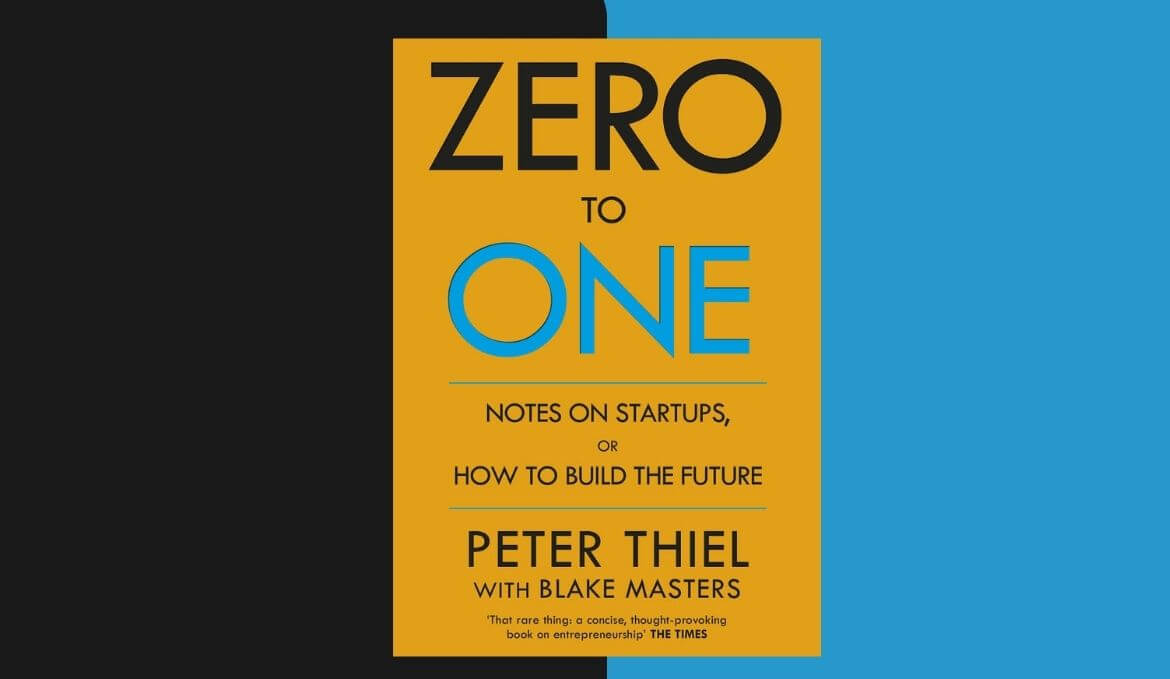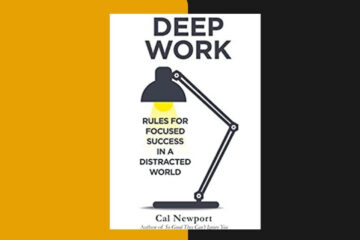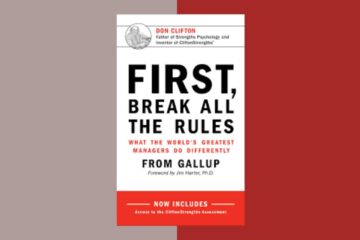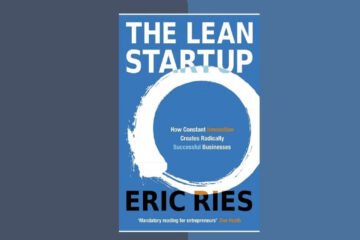Peter Thiel, co-founder of PayPal and early investor in Facebook and SpaceX, wrote the book Zero to One, which offers his insights and advice on how to build a successful startup. He argues that the most important factor in achieving this is to create something completely new.
The title of the book, “Zero to One,” refers to the concept of turning nothing into something, or starting a new and valuable business in a world where there are already many competitors. According to Thiel, this is the most challenging and significant task for any entrepreneur because it requires a shift in perspective from incremental progress to truly novel and game-changing ideas.
In today’s fast-paced and competitive business environment, his ideas on entrepreneurship and innovation are extremely relevant. It can be challenging to stand out and create something truly original when there are so many startups competing for attention and funding. Thiel provides entrepreneurs with a road map to follow, stressing the significance of taking risks, thinking big, and developing a vision for the future.
This article aims to summarize the Zero to One book and draw attention to its most important ideas and themes. The author draws on his own experiences as an investor and entrepreneur, as well as his observations of successful industries and businesses, throughout the book. He hopes to inspire and direct others on the path to successful startups by sharing these insights.
Zero to One is a book that offers a fresh and insightful perspective on entrepreneurship and innovation. In today’s competitive business environment, the author’s emphasis on creating something entirely new and valuable is highly relevant, and his advice and direction can provide entrepreneurs and innovators with a path to success. We will go into greater detail about the author’s concepts in the following sections, providing insights and examples to help readers apply these ideas to their own ventures and businesses.
Building a Monopoly
Although creating a monopoly may appear to be a controversial concept, the book Zero to One states that it is necessary for any successful startup. In point of fact, the author contends that competition is overrated and that the secret to success is to establish a monopoly.
He defines a monopoly as a company with no close competitors and a distinct and valuable market position. This permits the organization to set its own costs and rule its market, prompting high benefits and long haul achievement. In contrast, businesses that compete in crowded markets with many rivals frequently have trouble distinguishing themselves and maintaining a profit.
There are various instances of effective syndications in the business world, from Microsoft to research to Facebook. Each of these businesses has developed a valuable, one-of-a-kind product or service that is difficult for rivals to duplicate. For instance, the computer market was dominated for many years by Microsoft’s Windows operating system, whereas Google’s search engine is still the most popular option for internet users all over the world.
So, how do startups become monopolies? The author provides numerous strategies and insights. To begin with, he contends that it is crucial for center around making something altogether new and important, instead of basically developing a current item or administration. While this may necessitate taking risks and thinking outside the box, it is necessary for developing a truly distinctive product that can dominate a market.
Second, he encourages new businesses to zero in on a specialty market at first, as opposed to attempting to speak to a wide crowd. Before expanding to other markets, this enables the startup to establish a solid foothold and cultivate a loyal customer base in a specific market.
Finally, he emphasizes the significance of establishing barriers to competition. In order to establish a dominant position in a market, this may entail acquiring essential patents, establishing strong brand recognition, or utilizing network effects.
Thiel’s opponents contend that monopolies can stifle innovation and raise consumer prices. He argues, however, that a monopoly that works well can actually spur innovation because it lets businesses put a lot of money into R&D without worrying about losing market share to rivals.
Focus on creating a new category
Therefore, exactly what does it entail to produce something novel and valuable? Rather than simply enhancing an existing product or service, Thiel defines it as creating a new category. This offers the potential for significant rewards, but it also requires entrepreneurs to think creatively and take risks.
Because it enables businesses to establish a dominant position in the market with no close competitors, he emphasizes the significance of creating a new category. The company is able to set its own prices, make a lot of money, and drive innovation and expansion as a result of this.
There are numerous successful businesses that have established new market segments. With the introduction of the iPod and iTunes, for instance, Apple revolutionized the music industry and established a new subgenre of digital music. In a similar manner, Tesla established a new category of electric automobiles, and Airbnb established a new category of home-sharing, which disrupted the conventional hotel industry.
Instead of simply attempting to compete in existing markets, these businesses were able to establish new categories by concentrating on the development of something completely novel and valuable. They came up with creative solutions that addressed unmet needs or opportunities in a novel and compelling manner.
Although Thiel’s idea of creating a new category may appear daunting, it serves as a useful guide for business owners aiming for long-term success. Entrepreneurs can achieve long-term success and establish a dominant position in their respective markets by concentrating on the creation of something completely novel and valuable.
In conclusion, rather than simply competing in existing markets, the Zero to One emphasizes the significance of creating something brand-new and valuable. Entrepreneurs can establish a dominant position in their respective markets and enjoy long-term success by focusing on the creation of a new category, as Apple, Tesla, and Airbnb have demonstrated.
Start small and scale gradually
One of the advantages of starting small is that it allows entrepreneurs to test their ideas and refine their business model before investing significant resources. This approach allows entrepreneurs to make mistakes and learn from them, without jeopardizing the long-term success of their business.
Thiel also emphasizes the importance of staying focused on a specific niche or market, rather than trying to appeal to everyone. By focusing on a specific niche, entrepreneurs can establish a strong brand identity and create a loyal customer base, which can then be leveraged to expand into other markets.
There are numerous examples of successful companies that started small and scaled gradually. For example, Amazon initially started as an online bookstore before gradually expanding into other product categories. Facebook began as a social network for college students before expanding to a global audience. Both companies focused on building a strong foundation in their respective markets before expanding into new areas.
Another example of a company that started small is Dropbox. The company began as a simple file-sharing service for individuals and small teams, but gradually expanded to serve larger businesses and enterprises. By focusing on providing a simple, user-friendly service and gradually expanding its features, Dropbox was able to build a strong reputation and attract a loyal customer base.
In conclusion, starting small and scaling gradually, offers numerous advantages for entrepreneurs looking to build successful businesses. By starting small, entrepreneurs can test their ideas and refine their business model before investing significant resources, while also minimizing risk and maximizing flexibility. By staying focused on a specific niche, entrepreneurs can establish a strong brand identity and create a loyal customer base, which can then be leveraged to expand into other markets. The success of companies such as Amazon, Facebook, and Dropbox demonstrates the effectiveness of this approach, and offers a valuable roadmap for entrepreneurs looking to build successful and sustainable businesses.
Always aim for a long-term vision
Entrepreneurs can make strategic decisions that are in line with their values and goals with the assistance of a long-term vision. They are able to concentrate on building businesses that are long-lasting, meaningful, and beneficial to their clients, employees, and the entire community. Because it provides a sense of purpose and direction during difficult times, a long-term vision also assists entrepreneurs in navigating the inevitable difficulties and setbacks that come with building a business.
One illustration of an organization that has consistently had a drawn out vision is Tesla. Tesla’s CEO, Elon Musk, has emphasized the company’s mission to accelerate the transition to sustainable energy on a consistent basis. This drawn out vision has directed each choice made by the organization, from the improvement of electric vehicles and sunlight powered chargers to the formation of an organization of charging stations. Tesla has emerged as one of the world’s most innovative and disruptive businesses despite numerous setbacks and challenges to its long-term strategy.
Google is yet another company with a long-term vision. Since its inception, Google has sought to organize and make available all of the world’s information. This drawn out vision has directed each part of the organization’s methodology, from the advancement of search calculations and promoting stages to the making of items, for example, Google Guides and Google Drive. Google has grown to be one of the world’s most valuable and successful businesses by sticking to its long-term plan.
In conclusion, building profitable and meaningful businesses requires having a clear and ambitious long-term vision. A long-term vision inspires teams to work toward a common objective, provides a sense of purpose and direction, and directs decision-making. Google and Tesla are two examples of companies that have demonstrated this strategy’s efficacy and serve as a reminder that having a long-term vision is necessary for creating businesses that are both sustainable and have an impact. Every business decision should be guided by a long-term vision, which entrepreneurs should always strive for.
Focus on creating a strong company culture
Focus and deliberate effort are required to establish a strong company culture. The first step is to clearly define a set of principles and values that are in line with the company’s mission and vision. These values ought to be conveyed consistently throughout the organization and ought to serve as the foundation for each and every choice that employees and leaders make. In addition, it is essential to create an atmosphere that encourages trust, collaboration, and open communication. Leaders should be willing to make difficult decisions to protect the company’s culture and should encourage and reward behaviors that support it.
Zappos is one company that has a strong culture. The core values of the online shoe retailer’s culture include providing “WOW” customer service, embracing and driving change, and creating fun and a little weirdness. Zappos has been recognized for its commitment to creating a positive work environment and has consistently ranked among the top companies for employee satisfaction.
Netflix is yet another company with a strong culture. Judgment, communication, curiosity, and impact are just a few of the core values on which the streaming company has built its culture. Netflix has created a work environment where employees are encouraged to learn from their mistakes and to make decisions and take risks. Netflix has been able to consistently innovate and disrupt the entertainment industry thanks to this strategy.
In conclusion, for a business to be successful, it is necessary to establish a solid company culture. High performance, innovation, and talent can all be driven by a strong culture. To make areas of strength for a, pioneers should characterize an unmistakable arrangement of values and standards, convey them reliably, and establish a climate that encourages open correspondence, joint effort, and trust. The success of this strategy has been demonstrated by Netflix and Zappos, which serve as reminders that a strong culture can be a significant competitive advantage in today’s business environment.
About the Peter Thiel

Additionally, Thiel emphasizes the significance of technology in driving progress and addressing some of the world’s most pressing issues. He argues that entrepreneurs should concentrate on utilizing technology to generate value because it has the potential to improve our collective future.
In addition, he introduces the concept that a monopoly in a market is necessary for a successful business. He believes that monopolies are beneficial to society and business. He argues that a monopoly allows a company to focus on innovation and developing a sustainable business model rather than competing with other businesses in the market, which may seem counterintuitive.
At last, he stresses the significance of making another market as opposed to contending in a current one. He encourages businesspeople to identify a market segment and develop a product that caters to that segment. They can start a new market and become the market leader by doing this.
Best key takeaways
Zero to One offers many valuable insights for entrepreneurs and business leaders. Here are some of the key takeaways from the book:
- Focus on creating something new: The Author emphasizes the importance of creating something new and valuable, rather than simply copying existing products or services. He argues that creating a new market or niche is the key to building a successful business.
- Avoid competition: He suggests that it is better to create a monopoly in a specific market than to engage in direct competition with other companies. He argues that monopolies have a unique advantage in that they can capture most or all of the value in a market.
- Embrace technology: He believes that technology is the key to unlocking new markets and creating new opportunities. He suggests that entrepreneurs should focus on developing technology that can significantly improve people’s lives.
- Have a long-term vision: Author emphasizes the importance of having a long-term vision for your business or career. He suggests that entrepreneurs should focus on creating lasting value, rather than seeking short-term wins.
- Take calculated risks: He believes that taking calculated risks is necessary for success in business. He suggests that entrepreneurs should take risks that have a high potential payoff, but also have a limited downside.
- Don’t rely on luck: Thiel argues that success is not simply a matter of luck or chance. He suggests that individuals can take control of their own success by having a clear plan and working hard to achieve their goals.
- Be contrarian: He encourages entrepreneurs to think for themselves and to challenge conventional wisdom. He suggests that the most successful businesses are often those that go against the grain and do something different.



